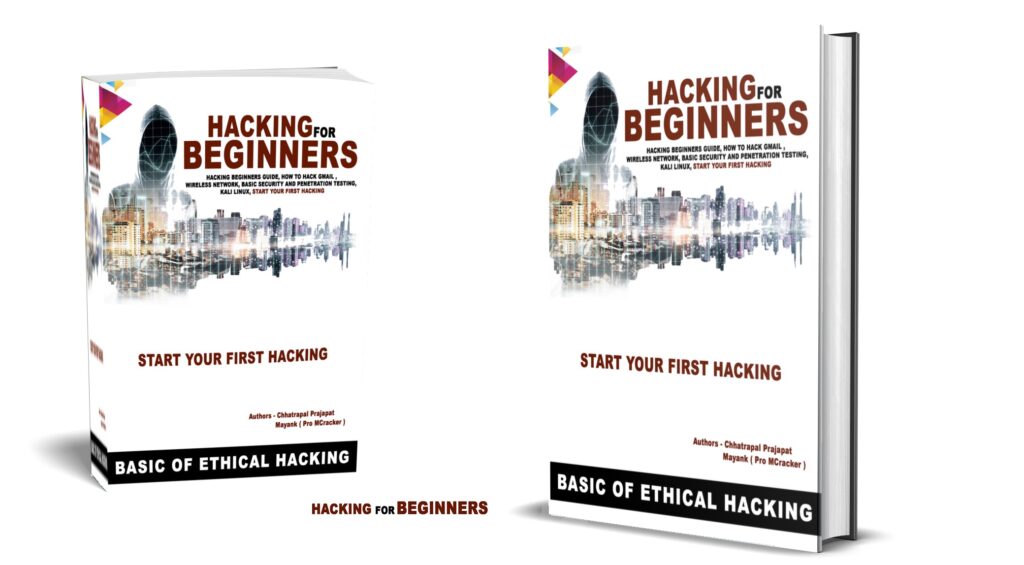Today, the field of cybersecurity is flourishing at an incredible speed. This is opening doors to plenty of new job opportunities in the cybersecurity field. If you are interested in learning cybersecurity, a few books can help you in making your learning journey fruitful. This article on ethical hacking + cybersecurity books will take you through the best books for cybersecurity. These books will introduce you to new ideas and help you solve your questions on cybersecurity. Here, you will look at the following topics:
- What is Cybersecurity?
- What is Ethical Hacking?
- Cybersecurity Books
What Is Cybersecurity?
Contents
Before we get into the best cybersecurity books, let us give you a quick refresher on cybersecurity. Cybersecurity refers to the practice of protecting programs, networks, computer systems, and their components from unauthorized digital access and attacks. We term these attacks as cyberattacks.
Cyberattacks result in the loss and access to confidential data, loss of money, and reputation loss for organizations. Hence, it is crucial to prevent cyberattacks, and for that, implementing cybersecurity measures is a necessity.
What Is Ethical Hacking?
Ethical hacking is the process in which a system’s vulnerability is discovered and exploited. We carry this out with the motive of ensuring system security.
We know individuals who perform ethical hacking as ethical hackers. Ethical hackers perform such hacking only with prior permission from the concerned authorities. Various hacking techniques and tools are used to carry out ethical hacking.
Let us now take you through the list of the best cybersecurity books.
Best Cybersecurity Books
Here, we have formulated a list of the 10 best cybersecurity books that will help learners. Let’s get started:
1. Hacking: A Beginners’ Guide to Computer Hacking, Basic Security, And Penetration Testing
Author: John Slavio
- This book on hacking is handy for beginners. It can help you take the first step in your ethical hacking career.
- The topics covered in this book are the history of hacking, types of hackers, various types of hacking attacks, essential hacking tools and software, and hiding IP addresses.
- It also speaks about mobile hacking, hacking an email address, penetration testing, and spoofing attacks.
2. Hacking for Beginners : A Basic Guide Book
Author: Chhatrapal Prajapat & Mayank

- This book is written only for educational purposes and is a comprehensive guide to ethical hacking and cybersecurity. By reading this book one can easily clear their doubts and concepts regarding Ethical Hacking and Cybersecurity.
- This book contains chapters of ethical hacking. cybersecurity, cyber attacks, Phishing Attacks, Keyloggers, Wireless Hacking, Email Hacking, Window Hacking & Security, Various Trojans, Android Mobile Hacking , Sniffers, Linux Hacking Tools and many more.
3. Metasploit: The Penetration Tester’s Guide
Authors: David Kennedy, Jim O’Gorman, Devon Kearns, and Mati Aharoni
- A Metasploit framework is a vital tool used by hackers for discovering and exploiting vulnerabilities. However, for first-time users, it can be a little challenging. Hence, this book will teach you all about Metasploit.
- In this book, you’ll learn the framework’s interfaces, module system, advanced penetration testing techniques, which include network reconnaissance, client-side attacks, wireless attacks, and targeted social-engineering attacks.
- Here, you will also learn to Integrate NeXpose, Nmap, and Nessus with Metasploit to automate discovery.
4. Penetration Testing: A Hands-On Introduction to Hacking
Author: Georgia Weidman
- This book throws an insight into penetration testing. Penetration testers discover security weaknesses in operating systems, networks, and applications.
- This book focuses on the core skills and techniques a penetration tester requires. Here, you’ll be acquainted with the prime stages of an actual assessment, which includes gathering information, unraveling vulnerabilities, gaining access to networks, and so on.
- In addition to the above, you will learn to crack passwords, bypass antivirus software, automate attacks, and you will also learn to use the Metasploit framework for launching exploits and for writing your Metasploit modules out of the many other teachings.
5. The Hacker Playbook 3: Practical Guide To Penetration Testing
Author: Peter Kim
- This is the third iteration of the THP – The Hacker Playbook Series. It brings new strategies, attacks, exploits, and tips. Besides all the new concepts, it highlights a few techniques from the previous versions.
- The Hacker Playbook 3 – Red Team Edition acquaints you with the Red Team. Red Teams simulate real-world, advanced attacks to test your organization’s defensive teams.
- Reading this will help you advance your offensive hacking skills and attack paths. In addition to that, it also focuses on real-world attacks, exploitation, custom malware, persistence, and more.
6. Practical Malware Analysis: The Hands-On Guide to Dissecting Malicious Software
Authors: Michael Sikorski, Andrew Honig
- Malware is malicious software that hackers often use to exploit system vulnerabilities. This book on Practical Malware Analysis teaches about the tools and techniques used by analysts.
- This book will guide you to analyze, debug, and disassemble malicious software.
- Here, you will also learn to set up a safe virtual environment to analyze malware, how to crack open malware, gauge the damage it has done, clean your network, and verify that the malware never comes back.
7. Social Engineering: The Science of Human Hacking
Author: Christopher Hadnagy
- Social engineering depends on human errors to gain access to confidential information. Systems can be protected, but we can use no code that can be certain to help protect data when it is a human being.
- This book depicts the most commonly used social engineering methods and shows how they were being used in the past.
- Here, you will learn to examine the common social engineering tricks, analyze how social engineers can use emotions, adopt fruitful counter-measures to prevent hacking, and many more.
8. Applied Cryptography: Protocols, Algorithms, and Source Code in C
Authors: Bruce Schneier
- This book provides a comprehensive survey of modern cryptography.
- It defines how professionals can use cryptography to encipher and decipher messages.
- It consists of several cryptography algorithms and shows how to solve security problems.
9. Black Hat Python: Python Programming for Hackers and Pentesters
Author: Justin Seitz
- Many exploit frameworks are written in Python; here, using GitHub, you will learn to create a trojan command-and-control, detect sandboxing, and automate common malware tasks.
- In this book, you’ll go through the darker side of Python’s capabilities, like infecting virtual machines, writing network sniffers, creating stealthy trojans, etc.
- This book covers a few networking fundamentals, web applications, windows privilege escalation tricks, and more.
10. The Web Application Hacker’s Handbook: Finding and Exploiting Security Flaws
Author: Dafydd Stuttard and Marcus Pinto
- The second edition of this book focuses on updated Web applications, exposing them to attacks and executing fraudulent transactions.
- It speaks about the latest step-by-step methods for attacking and defending the extensive range of ever-evolving Web applications. It also discusses new remoting frameworks, HTML5, UI redress, and hybrid file attacks, to name a few.
- In addition to the above, the other concepts are Attacking Authentication, Attacking the Application Server, Finding Vulnerabilities in Source Code, etc.
Those were the list of the best cybersecurity books.



